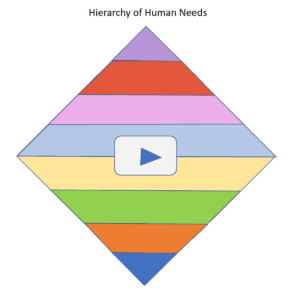Your job as a manager is hard enough without always having to stay on top of how to keep your employees motivated. You have to manage the long-term goals of your piece of the business, not to mention short-term objectives. Then there’s the day-to-day unforeseeable problems that always seem to pop up. Keeping employees motivated seems to be just another thing in your to-do box.

Of course, you want good employees to stay. The LAST thing you need is an unexpected, “I QUIT” where you’ll be frantically trying to find a replacement within 2 weeks. You worked hard to find someone… train them… integrate them.
But there are also those employees that you just don’t know how to motivate. Are they just lazy workers or do they think that what they want as an employee just isn’t something they can have/achieve?
Most people have some type of currency… something that gets them fired up. You just have to find it. Think about it. When you’re doing something you don’t want to be doing, what motivates you? Is it praise… helping the business excel… a bonus, maybe?
Find out what the currency for each of your employees is. Don’t be surprised if there are a lot of different motivators in the group. Once you find out the “what” that’s their motivation, you’re on your way to motivating each employee in a way that works!
Keep reading to find out about:
- the underlying needs that are the basis for what motivates everyone
- why good employees leave and what you can do to avoid this
So, let’s get started.
Knowing about motivation in the workplace starts with understanding a little about what causes humans to do what they do, in general. We’ll cross reference that to the latest information on why good employees leave.
This short video explains…
As you can see, according to Maslow, there are basic things that motivate humans: they start at the most basic level — physiological needs have to be met first. As these needs get met, humans try to meet more higher-level needs.
Looking at Maslow’s hierarchy of needs in combination with the reasons why employees leave shows that there could be a needs at different levels of his pyramid that aren’t being met. If needs aren’t being met and there’s a possibility that your employees can get those needs met somewhere else, they will likely become unmotivated and begin to look for another job. (1)
To get a better understanding of how to keep your employees motivated, let’s take a closer look at the reasons they leave. Remember, once you understand more about their needs, you’re on your way to providing the right motivations to have your team slay your department objectives.
Why Good Employees Leave:
- Lack of growth: This means different things to different people. Take time (maybe during their yearly or bi-yearly review) to find out what growth looks like to each employee. You may be surprised at how easy it could be to provide growth opportunities that help your department, while giving them what they need in additional skills.
- Lack of recognition: In an article published by Forbes.com on workplace statistics, it states that 79% of people who leave their jobs say the reason is “lack of appreciation.” The article goes further to say that people don’t generally leave because of the company. “They leave their bosses.” (2)
- Relationships: An abstract published many years ago by Wiley Online Library in their Journal of Communication stated that, in researching the workdays of a variety of professionals – from clerical to the more technical, 50%-80% of the workday was spent in some form of communication with others. At the time of the publication, 2/3 of that time was spent talking. If an employee doesn’t have good relationships with those people, it can make a good portion of their day miserable. Relationships – both lateral and upward-focused – matter to a person’s motivation. (3)
- Failed expectations: One of the biggest disappointments to people is expectations that go unmet. Expectations may not be communicated well to begin with, or they may have changed. But people who think they’re working towards an end goal, only to find out that the goal posts have moved or changed altogether, aren’t motivated.
- Poor work environment: This can be a physical environment, but more often it’s likely relational. People who have to be someone that they’re not, won’t stay motivated for long.
- Cultural mismatch: This is also relational; when many personalities form a tight match and an employee doesn’t feel like part of the tribe, they’ll feel like an outcast and won’t stay motivated.
- Salary: Dissatisfaction with pay could be related to workload, it could be based on what others are perceived to do versus their pay, and it also can be a function of the marketplace. Without a frank conversation about the employees expectations, their goals as it relates to pay, and their path to get there, an employee can quickly lose initiative.
- Work/Life balance: With the ever-changing dynamic of the American family unit, individual strains, and the growth of digital everything, people are more interested in work/home life balance than ever before. If an employee isn’t feeling that balance but sees other companies make it a norm, they’ll consider leaving for it if that’s a key motivator.
Now that we know the reasons why most good employees quit, the way to go about keeping each employee motivated becomes a lot easier to envision. But it’s a very individualized thing. It’s a matter of determining the specific currency of those who work for you. Each may be different for very different reasons.
What do you know about your employees? Does one value growth? Does another value pay more? Does another just want more flexibility in work hours to be able to work around family issues?
If you don’t know, or you think you’ve got employees that are motivated by several things, take the time to sit down with them and find out. That can be as simple as a one-on-one strategy chat where you get answers about them individually, and they see you are invested in them.
Once you know — really KNOW– what the individual needs are for your team, motivating each becomes as simple as providing them rewards for good performance in ways that really matter to each.
Sources:
(1) HR Partner , (2) Forbes , (3) Online Library.Wiley.com


